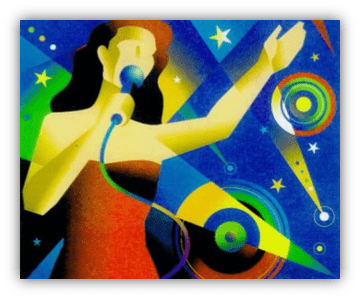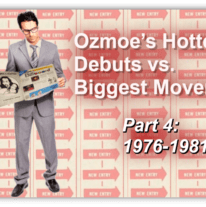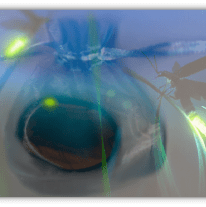It’s 1998.

My editor at Billboard Books emails me.
He’s thrilled with the result of my first book, The Encyclopedia of Daytime Television…
And tells me he can’t wait to hear my next proposal.
Gulp.
“Huh?! What?!” I think to myself. I had no plans to do a second book.
But since he liked my initial foray, maybe I should try. And fast. Strike while the iron is hot, I believe the saying goes.
Figuring Out What to Do
I surveyed what titles Billboard Books had published and obviously, most involved music.

Specifically, my friend Fred Bronson kicked off a series with his Billboard Book of Number One Hits, first published in 1985.

Which Fred co authored after the writer needed more help.
I considered if any genres were left to be covered?
And then it hit me: Adult Contemporary.

Also known as easy listening.
That chart had a good mix of artists and familiar and not-so-familiar records that I could cover.
Additionally, having a copy of Joel Whitburn’s Top Adult Contemporary Hits 1961-1993, I knew that there would be probably no more than 700 songs to cover. That publication had 653 number ones at the time of publication.
So, I proposed the idea and told the editor I could get a manuscript to him in a year. He said yes.
And I gulped again.
Doing the Research
I promised that like the other Billboard music books, I would interview as many artists, producers and songwriters as I could find.
With the internet still young in 1998, this was challenging – but not impossible.

For one, I used Billboard’s professional publication listing booking agents, managers, PR contacts and other sources for active artists.
Some people had their names listed in the online white pages on the internet. That helped too.
Even my father assisted me. Working at the University of North Carolina at Chapel Hill in the health and physical education department, I asked him to relay a request to John Swofford.
Swofford was commissioner of the Atlantic Coast Conference (ACC) and brother of one of my subjects. The result was that I interviewed Swofford’s brother.
Known professionally as “Oliver.”

His hit “Jean” was planned as an album cut until radio stations played it after the success of his version of “Good Morning Starshine.”
“Jean” caught him off guard. Rod McKuen, who sang the song in the movie The Prime of Miss Jean Brodie, bombed with his take on it.
Oliver retired professionally in 1984 and told me he had a very good life. Glad to hear that.
Oh, and I had one more connection … I worked as the assistant for KC, of KC and the Sunshine Band at the time.

KC dueted with Teri DeSario on the 1980 hit remake of “Yes I’m Ready” and told me about it. I also learned from him that another author with Billboard doing a book on Number Two Pop Hits had contacted him.
That prodded me more to meet my deadline and get my book out first.
(Yeah, I can be that petty sometimes.)

We’d describe that as: ‘industrious.’
But you’re not reading this about the process as much as results. So, here are some facts and figures about writing this book.
Getting Revelations and Disappointments:
Longest waits for interviews: Due to their schedules, it took me nearly all 12 months to finally speak to Helen Reddy and Al Jarreau.

Al was a good interviewee discussing “Moonlighting.”
As for Helen, she had plenty to say about her eight adult contemporary hits.
Her manager husband Jeff Wald persuaded her to sing “Delta Dawn” despite her initial reservations.

She had a tough time doing “Keep On Singing,” which she recorded in tribute to her recently deceased father, because her mother and a close friend died not long after the recording.
Most amusing to me was when I asked her about “I Can’t Hear You No More,” which she hated because she felt it was Capitol’s effort to get a disco hit out of her.
I noted that it only made number 29 pop and might have done better if its B-side “Music in My Life,” had not gotten some airplay on radio stations at the same time.
When I mentioned “Music in My Life,” Helen’s voice fell quiet for what seemed longer than the few seconds it was and let out, “Another true piece of tripe! Those were songs I was pressured to sign. I would rather not have a hit than do them.”

In my mind: For that comment alone, she was worth the wait.
Favorite stories told:
I have four of them:
1. Andy Williams, Tony Bennett and Johnny Mathis all wanted a crack at recording “Where Do I Begin,” the vocal version of the theme from the hit movie Love Story. They were all signed to Columbia, so to be fair in giving each one a chance at success, the label released their versions the same day.
However, Andy had an advantage.

…In that he had his own weekly TV series in 1971 where he could promote the song.
And he did. He left the other gentlemen behind with that advantage.
Bennett’s version only made the bubbling under chart at number 114, while Johnny’s take never registered in Billboard.
2. Bread ended 1972’s “The Guitar Man” with a live recording of an audience, only the attendees weren’t at a Bread concert.

Listen to the fadeout and you can hear the announcer say “The Doors!”
Yep, Jim Morrison has a connection on record to David Gates. Who knew?
(Incidentally, Marilyn McCoo and Billy Davis Jr. told me that for their remake of “Never My Love” as part of the 5th Dimension, the audience applause was dubbed there too. They also talked with me about their group’s other four adult contemporary chart toppers including… ahem, “Wedding Bell Blues.”)
3. Knowing almost everything else about “Love Will Keep Us Together,” I asked the Captain and Tennille about their memories winning the Grammy for 1975’s Record of the Year, presented to them by Stevie Wonder and Joan Baez.
The latter apparently wasn’t a fan of the win. “She looked at us like we came out from under a rock,” Toni Tennille told me.

“Please: lose that ridiculous hat.”
4. Kenny Rogers told me that his song “What About Me?” was planned as a three-way love song with Lionel Richie and Barbra Streisand, only to see them drop out. He then tried Jeffrey Osborne and Olivia Newton-John, but they had albums coming out soon and didn’t want this to compete with those releases.

So, he settled with his third choices, James Ingram and Kim Carnes.
Ironically, “Penny Lover” by Lionel Richie replaced “What About Me?” at the top of the adult contemporary chart in November ’84.
Favorite interviewees:
Almost all were down to earth and enjoyed recollecting their accomplishments.
But the ones that I really felt a connection with were Rudy Wolfgramm of the Jets and Richard Marx.

Rudy was delightfully soft spoken and forthcoming.

While Richard Marx was an engaging storyteller.
Most difficult interview:

Asking Al Stewart about his inspiration for writing “Time Passages,” he started with “It’s one of those sort of nebulous things.”
Already, I knew I was going to have a tough time. I concentrated on other aspects of his life and got more out of him, but it wasn’t easy to do.
Want to know more?

Order your copy of The Billboard Book of Number One Adult Contemporary Hits.
And feel free to ask me any questions you may have here.
Let the author know that you liked their article with a “Green Thumb” Upvote!







The next time we meet, I’ll bring my copy. (Why not engage a fanboy moment?) Good behind-the-scenes look at this phenomenon. I have the albums, R&B and (yes) No. 2 books in addition to yours and Fred’s. I bought the country book back when I worked in South Bend but left it there (the paper had a locally written country column back then and it was a good resource for fact-checking). I wish I’d kept it.
Wow. This is so cool. I think you may have mentioned something about this in the comment section, but a lot of things back there get jumbled in my mind due to the sheer amount of commenters. My questions-
I love the Joan Baez-Captain and Tennille story. I’m team C&T, by the way.
I have written books after that. I’ve done 10 so far. Most of them apart from this one involve television, since I’m more comfortable covering that subject. Here’s my author page in Amazon:
https://www.amazon.com/stores/author/B001HPAWHI/allbooks
Right now, I’m working on my 11th book, a history of Wheel of Fortune. It should be out by around this time next year.
For KC I coordinated his interviews with his PR team and yes, I did go on the road and helped out with travel. After 5 years of that, I got burned out and went back home, but I remain in touch with him and many of his band members.
Hmmm. The author link didn’t work. Just look up Wesley Hyatt under Books in Amazon and you’ll find my page there.
I tried to fix this is a few ways. It seems to be a weird block from Amazon. Here’s a workaround:
https://www.amazon.com/s?k=wesley+hyatt&i=stripbooks
Thank you!
Very cool! Let us know when the WofF book is out. My wife is a long time Wheel watcher. It helped her learn English when she first came to the U.S. and she’s been hooked ever since.
Wow, this is cool. I love this look behind the scenes. If it took 12 months to get those interviews, how long was the whole process of writing, and then how long did it take from turning in the manuscript to actual publication?
I was writing along with doing the interviews, so I got the initial draft to the publisher around a year later or so. It was funny, because I was held up as I’m Your Angel (ugh, I know) was the last entry and stayed at number one for several weeks, so I had to get that done in the revisions along with a few other items. But it took only a few months at that and it came out in 1999.
Very cool, a look at how the sausage is made! I am totally not surprised Richard Marx was an engaging interview… seems like such a mensch! And I’ve always had an affection for family bands like the Jets. This is what America should be and sometimes is… a place where a Tongan-American family from Minnesota can hit it big!
This is great, thanks for the behind the scenes. The tnocs version of the dvd commentary. I like the refreshing honesty of Helen Reddy.
From what you said it doesn’t sound like there was anyone that refused to take part or made life difficult (nebulous interview responses aside)? Or was there anyone that you really wanted to interview that you couldn’t reach?
I’m not sure about the Columbia and Billboard acumen. Scheduling the same song to be released by three of your big name singers on the same day doesn’t sound like a great plan to me. More a case of stepping on each others toes and wounded pride forJohnny. Then there’s Billboard having writers chasing interviews with the same people for different books at the same time (but well done Ozmoe for that strong work ethic and getting yours out first).
I wanted to reach Barry Manilow, Neil Diamond and Richard Carpenter, but I couldn’t either find their contacts or got no response from their representatives, I’m not sure which it was at this late date. Luckily, all had anthologies out with liner notes about the songs included in them, so that helped me with a lot of writing.
And I knew there was no way I could get ahold of Elton John, but luckily for me he did a lot of interviews, so researching his hits wasn’t too hard. Although I’m glad I followed the limitation of 500 words per entry, as it would’ve been hard with some of his songs and a few other entries to squeeze out more about the making of each.
Also, I had been in contact with Roberta Flack’s representative for several months before getting a no from her as well for whatever reason, which was very disappointing to me since she like me is from North Carolina.
Columbia probably thought the simultaneous release would be the fairest way to handle Where Do I Begin, but yeah, Andy definitely had the advantage, especially given his chart momentum at the time was greater than Johnny and Tony.
And yes, I did get my book out first, and while the other writer found a few things I didn’t, I felt pretty good overall about what I did get there.
THIS is the Helen Reddy interview that you were talking about! How very cool! A neat opportunity that not many have had. I’ve read that Al Stewart really didn’t like “Time Passages”, which is a shame, because I really love it. And the other hit from that album “Song on the Radio”.
1) I really need to order your book (I am going to do this).
2) I really need to build a playlist of the easy listening #1s, since that line of music is right up my alley. I especially wonder how many of the #1s from the 1960s and 1970s I don’t yet know.
WoW, Ozmoe, what a fantastic story. I hadn’t made the connection between
your books and your online name.
I’ve seen several of these at a local bookstore and I will make sure I pick up
your latest venture.
This site is a treasure trove of talent and I’m proud to be a small part of it.
Do musical artists bristle at being asked about their biggest hit? Would the interview with Helen Reddy have ended if you led with a question about “I Am Woman”?
I don’t think they bristle if you frame it about wanting to talk about them as well as their hit, which is what I did here. As for Helen, I Am Woman was a number one pop hit but surprisingly not a number one adult contemporary one, so I didn’t need to bring it up to her and didn’t do so. If I had, I doubt she would have objected based on what the song meant to her legacy.
So interesting. As part of this group that loves pop culture and lists, I am enjoying TNOCS so much!
It definitely is a fun group, and I’m glad to add what I can to make some interesting reading.
Back at’cha, @mjevon6296 . Glad to see you here!